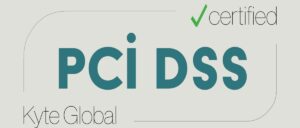Adopting mental shortcuts can help you stick to a budget.
By Samantha Lamas.
Many financial decisions force us to balance what we want now against what’s better for us in the long term. In this classic want/should conflict, a “want” is something that grants immediate pleasure, while a “should” is something that offers benefits much later–such as healthy retirement savings.
We all know we should be doing things like saving for retirement, paying off our debt, or monitoring our spending, but these “shoulds” are hard to put into practice. Why? Because we are human. We aren’t made to think 30 years from now, even though we should be doing so.
With that in mind, how can we get ourselves to accomplish our “shoulds”? One way is to develop healthy financial habits.
Don’t Underestimate the Power of a Good Financial Habit
Our mind is constantly using mental shortcuts to make decisions, some of which come from our habits. Many of us don’t even notice our own habits because they’ve become something we do automatically. These simple habits make our lives easier by helping us combat the multitude of decisions we make daily. For example, most of us brush our teeth every morning. Instead of waking up each morning and pondering whether to brush our teeth, our habit makes the decision for us. Not only is this one fewer decision we must make, but it also may lead to better dental hygiene.
Similarly, developing the right financial habits may help make decisions easier and improve our overall financial well-being. Many people think that building a habit is all about repetition, but a few other factors must be considered:
1) The difficulty of the behavior
2) The context of the decision
3) The immediate reward associated with the behavior
Keep Your Financial Habits Simple
When it comes to building a habit, the more complex the desired behavior is, the harder it can be. For our finances, using a simple but effective rule of thumb can be a solution.
In our recent research, we began sifting through the many rules of thumb in the media to identify the rules that financially well-off people tend to use. Rules like “Always pay debt in full when possible,” “Save up for big purchases,” and “Have an emergency fund (to cover three to six months of expenses)” seemed to float to the top. That said, choosing a rule of thumb to follow must be a personalized decision. Try choosing a rule that fits into your lifestyle and can help you reach your financial goals.
Take a Look at Your Environment
Many people depend too much on self-control when developing a financial habit, and this can often be to our own detriment. Instead, focus on reducing friction when building a habit. For example, if you’re trying to stick to a budget, make sure to transfer money into your savings account right when you get a paycheck (you can’t spend what you don’t have!). This tactic also gives us a dependable cue to save our money because we know that, as soon as we get our paycheck, we should dedicate some of it to saving. When we are trying to build a financial habit, finding a cue is very important. A cue acts as a reminder to act out our rule and must be something dependable and memorable, like a specific day (every Monday, I must do X), the start of the month, or whenever you receive your paycheck.
To make a decision even easier, use technology to automate the process. Nowadays, most of us can set up an automatic transfer on our bank apps to automatically transfer money from our checking to our savings account on a given day.
In other words, our environment matters. If you’re trying to cut out sugar in your diet, your first step might be to throw out the cookies and chocolate in your pantry. We should follow this same idea when it comes to building financial habits. So, go ahead, delete those shopping apps off your phone, unsubscribe or cancel services you don’t use anymore, and leave your credit card at home when going to Target.
Follow Up With Incentives
It’s also important to reward ourselves for the behavior as soon as we complete it. The reward should be something simple and inexpensive–like splurging on a fancy coffee drink or spending some time reading a guilty pleasure novel. The point of this step is to associate the behavior with something that makes us happy so as to encourage us to keep it up.
Rules of Thumb and Financial Habits: A Powerful Combination
In our research, we found positive correlations between a person’s habitual use of a financial rule of thumb and their financial well-being, many of which are larger than the relationships we found between each rule and financial well-being. This emphasizes the importance of having good financial habits. That can start by finding a rule that works for you and your financial plan. Then, it’s about shaping your environment for success, implementing encouraging rewards, and repetition. There’s power behind following a simple rule of thumb and sticking to it.
Morningstar Disclaimers:
Since its original publication, this piece may have been edited to reflect the regulatory requirements of regions outside of the country it was originally published in.
The opinions, information, data, and analyses presented herein do not constitute investment advice; are provided as of the date written; and are subject to change without notice. Every effort has been made to ensure the accuracy of the information provided, but Morningstar makes no warranty, express or implied regarding such information. The information presented herein will be deemed to be superseded by any subsequent versions of this document. Except as otherwise required by law, Morningstar, Inc or its subsidiaries shall not be responsible for any trading decisions, damages or losses resulting from, or related to, the information, data, analyses or opinions or their use. Past performance is not a guide to future returns. The value of investments may go down as well as up and an investor may not get back the amount invested. Reference to any specific security is not a recommendation to buy or sell that security. It is important to note that investments in securities involve risk, including as a result of market and general economic conditions, and will not always be profitable. Indexes are unmanaged and not available for direct investment.
This commentary may contain certain forward-looking statements. We use words such as “expects”, “anticipates”, “believes”, “estimates”, “forecasts”, and similar expressions to identify forward-looking statements. Such forward-looking statements involve known and unknown risks, uncertainties and other factors which may cause the actual results to differ materially and/or substantially from any future results, performance or achievements expressed or implied by those projected in the forward-looking statements for any reason.
The Report and its contents are not directed to, or intended for distribution to or use by, any person or entity who is a citizen or resident of or located in any locality, state, country or other jurisdiction where such distribution, publication, availability or use would be contrary to law or regulation or which would subject Morningstar or its subsidiaries or affiliates to any registration or licensing requirements in such jurisdiction.
MeDirect Disclaimers:
This information has been accurately reproduced, as received from Morningstar, Inc. No information has been omitted which would render the reproduced information inaccurate or misleading. This information is being distributed by MeDirect Bank (Malta) plc to its customers. The information contained in this document is for general information purposes only and is not intended to provide legal or other professional advice nor does it commit MeDirect Bank (Malta) plc to any obligation whatsoever. The information available in this document is not intended to be a suggestion, recommendation or
solicitation to buy, hold or sell, any securities and is not guaranteed as to accuracy or completeness.
The financial instruments discussed in the document may not be suitable for all investors and investors must make their own informed decisions and seek their own advice regarding the appropriateness of investing in financial instruments or implementing strategies discussed herein.
If you invest in this product you may lose some or all of the money you invest. The value of your investment may go down as well as up. A commission or sales fee may be charged at the time of the initial purchase for an investment. Any income you get from this investment may go down as well as up. This product may be affected by changes in currency exchange rate movements thereby affecting your
investment return therefrom. Any decision to invest should always be based upon the details
contained in the Prospectus and Key Investor Information Document (KIID), which may be obtained from MeDirect Bank (Malta)
plc.





